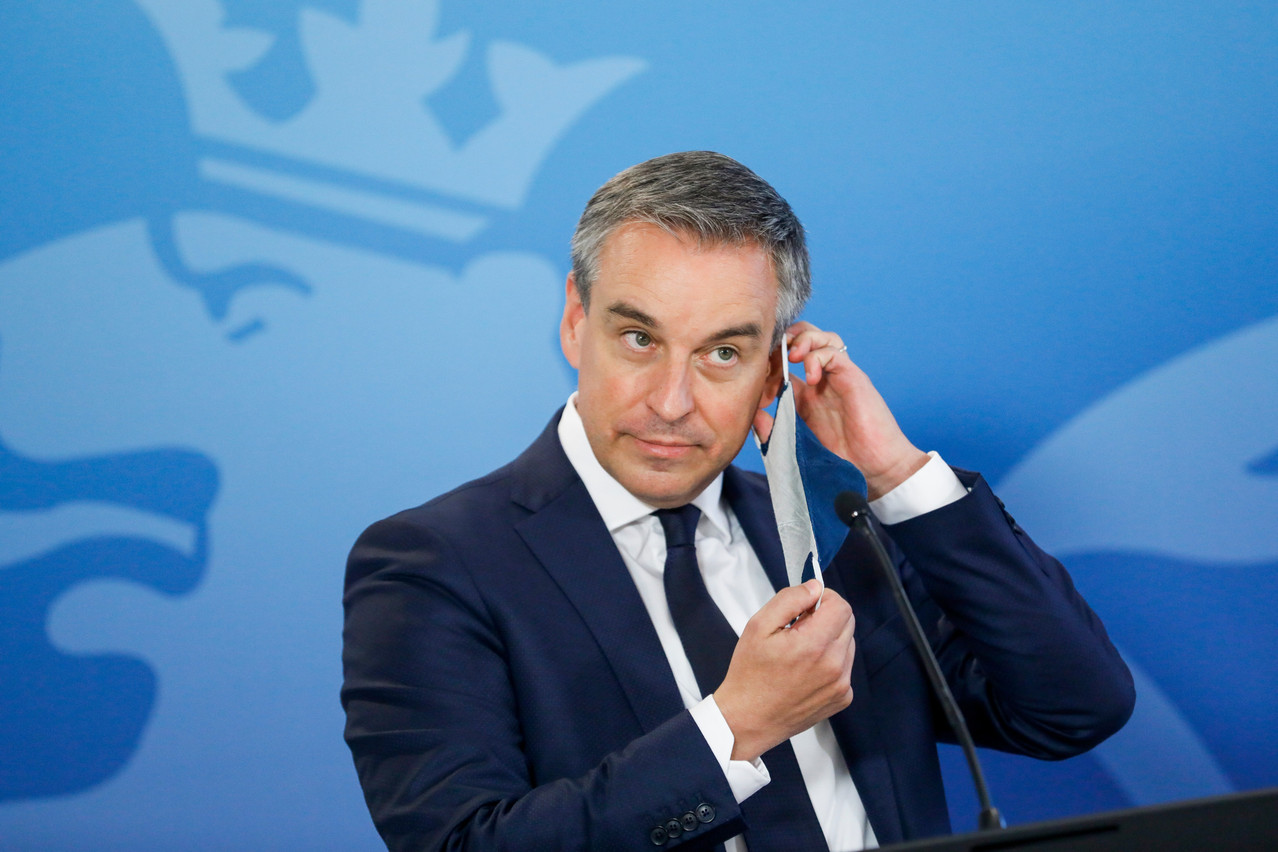Education minister Claude Meisch (DP) and health minister Paulette Lenert (LSAP) on Thursday presented the government’s back-to-school strategy for the third school year impacted by the pandemic.
“The message of this rentrée is clear: If we get tested and vaccinated, we can largely operate normally,” Meisch said. Around 90% of teachers will be fully vaccinated by 15 September, along with 15% of students aged 12 or over.
Pupils will no longer have to wear masks when seated at their desks or outside on playgrounds, Meisch said. But teachers and students will continue wearing masks when moving around the classroom or the school building.
In addition, if a case is diagnosed within a class, the rest of the group will need to wear masks until they are tested at the end of a six-day isolation period within the school.
The ministry last year introduced a tiered plan of measures depending on how many infections are diagnosed within a class, which is now being adapted to include the CovidCheck regime.
In case of one or two infections within a classroom, the rest of the group can continue attending school if they are vaccinated or considered recovered. Unvaccinated children will get tested every 48 hours during the six-day isolation period. However, children who aren’t vaccinated and refuse to get tested must stay away.
“The idea of the CovidCheck will be applied when the virus is present in the classroom,” Meisch said. However, he said this scheme isn’t suitable generally as children have a right to education and a duty to attend school. “The CovidCheck regime is very successful for selective activities,” the minister said. “But when it’s a daily activity, this is different and we must find other solutions.”
Rapid testing regime
Luxembourg last year managed to keep schools largely open, with only one or two weeks of full home schooling--depending on the school year--around the carnival holiday. “We don’t need to reinvent the wheel,” Meisch said about the government’s readiness to respond to the pandemic in the school system.
Meisch did not rule out that stricter measures could become necessary depending on how the pandemic develops over the coming weeks and months. “Covid risks becoming an illness of children and young people,” he said.
School communities risk becoming environments in which the virus can spread, Lenert said, adding that the measures aim at balancing protecting children and young people and offering them a sense of normality.
Primary school pupils will be tested twice a week with rapid antigen tests at school, while secondary school students will receive one test at school and one to take at home. “The tests are voluntary,” Meisch said, adding that 90% of parents had authorised for these tests to be carried out on their children last year. “That shows great acceptance and I think this is what we should build on.”
Parents of pre-school children will be issued two tests to carry out at home. Pre-school children will have to continue quarantining under the previous rules when there is more than one case in a group.
